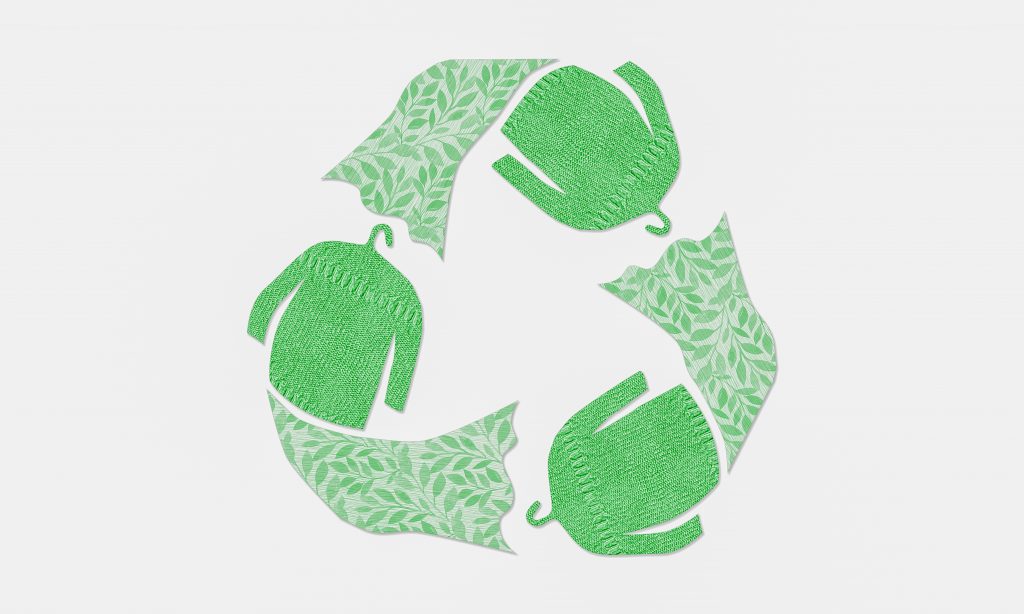
Fast fashion brands continue to be popular due to their convenience and cost. However, sustainable fashion has grown in the past few decades, even in the past few years. Their missions and values to promote humane clothing production facilities, protect the environment, and support their communities have made them trend in popularity.
What is Fast Fashion?
Fast fashion is clothing that is mass-produced to keep up with ever-changing trends. The goal of fast fashion is just that – to produce it fast. Because it is made quickly in large quantities, the clothing is cheap. However, cheap and mass-produced clothing does not have the best quality, so they are not meant to be worn more than a few times.
The Dark Side of Fast Fashion
Although fast fashion sounds like an ideal way to purchase clothing, it is harmful both environmentally and ethically. However, it is a powerful industry, one that produces 100 billion items of clothing per year.
According to the UN Alliance for Sustainable Fashion, fast fashion is responsible for 2-8% of the entire world’s carbon emissions. The biggest issue with fast fashion is waste. Because fast fashion keeps up with ever-changing trends, leading to productions of poor quality clothing that is not meant to last, consumers only wear a clothing item a few times before throwing it away.
If consumers switched to high-quality clothing, like the boots produced by Oliberté, they would be less likely to waste or throw away their clothing so quickly. This would lead to less production, which would lower the amount of greenhouse gases being released into the atmosphere.
On the ethical side, factory workers for fast fashion companies are often subject to less than livable wages. Because the cost of the clothing is so cheap to sell, workers often make a fraction of that price, leading to many of them living below the poverty line. In some cases around the world, major fast-fashion corporations have been accused of providing inhumane work environments for their employees.
What is Sustainable Fashion?
Sustainable fashion is clothing that is produced with a focus on being environmentally friendly. Many sustainable fashion brands also focus on being ethical as well, as the two go hand in hand. While it has grown in popularity in the past few years, it still has a long way to go to be anywhere near as popular as fast fashion. Their main struggle is competing with the prices of fast fashion, despite their quality being notably higher.
Environmental Benefits of Sustainable Fashion
The main difference in fast vs. sustainable fashion is the amount of waste that each one produces. Sustainable fashion decreases waste by making clothing that is significantly better quality. Less waste leads to both less water pollution and fewer carbon emissions during production.
There are also ways during production that a clothing company can be sustainable. For example, Oliberté partners with Vibram to craft their boots’ soles. One of Vibram’s goals is to reduce energy consumption in their facilities. They also work to reduce waste during production and even collect data to determine better ways to recycle and reuse materials.
Ethical Benefits of Sustainable Fashion
Unlike fast fashion, sustainable fashion focuses more on ethics as well as the environment. They promote healthier work environments by taking extra measures to ensure safety and provide livable wages for their workers.
Major sustainable companies like Oliberté are Certified B Corporations, meaning they have verified high standards in both their social and economic performance. This is a major step to reducing inequality and poverty rates by providing opportunities through their business.
Ethical companies provide all the following benefits to their communities:
- Providing humane working conditions in their communities, including developing countries
- Paying livable wages to their factory workers to reduce poverty rates and eliminate child labor
- Give back to the community by working or supporting the local area
- Partner with companies that share similar values to their own to support the growth of ethical companies
A shared value of ethical companies is their belief in supporting the community. For example, when the pandemic began spreading worldwide, Oliberté stepped up and committed to producing masks to sell on their website. Along with their boots, they were determined to help combat the spread and encourage their consumers to join them in the fight against COVID. By doing so, they showed their commitment to the community’s overall health and wellbeing.
How Can I Support Ethical Companies?
Simple. Support ethical companies by consuming what they have to offer. By purchasing their products or services, you are allowing that company to stay in business, continue paying fair wages and motivating them to stay in line with their values and mission.
Supporting ethical companies helps encourage brands to become lifestyles. Beyond just fashion, they attempt to educate the public on important issues in their community and around the world. They promote their mission by supporting other companies and non-profit organizations that share their ethical beliefs. Purchasing from an ethical company can help bring its popularity above fast fashion in the future.
While purchasing from ethical companies helps to boost their business, it is also important to remember the effects of fast fashion. Educating others on fast fashion vs. sustainable fashion will help boost ethical companies while teaching the importance of their impact on the community.
Future Growth for Sustainable Fashion
The future for sustainable fashion looks bright. In 2009, New York Fashion Week hosted its first-ever Eco Fashion Week. Since then, sustainable fashion weeks have popped up all over the world, even spreading to the regular fashion weeks in London, Milan, and other major cities.
According to a report by The Business Research Company, sustainable and ethical fashion is expected to grow to $9,808.5 million in 2025. That means businesses like Oliberté, the world’s first Fair Trade Certified™ footwear factory, will continue to grow in both profit and popularity.





